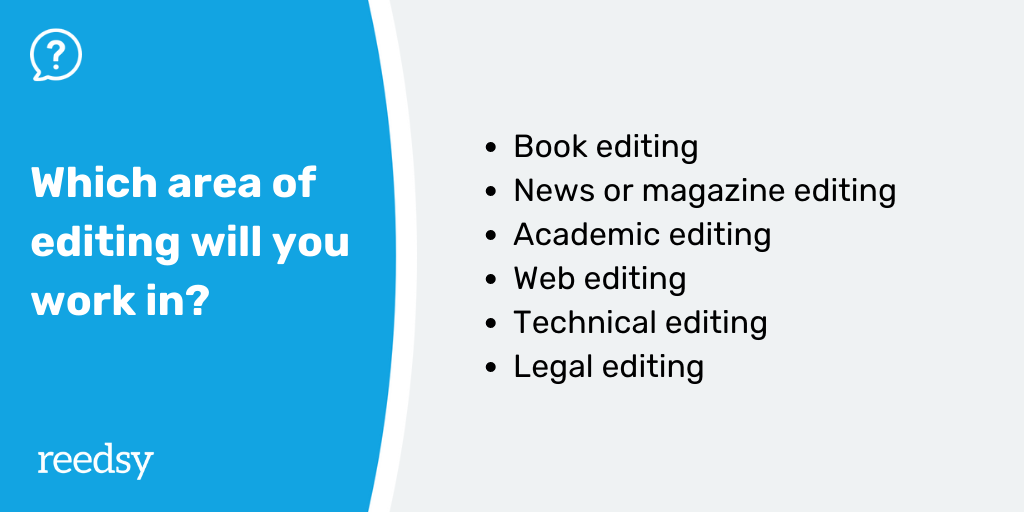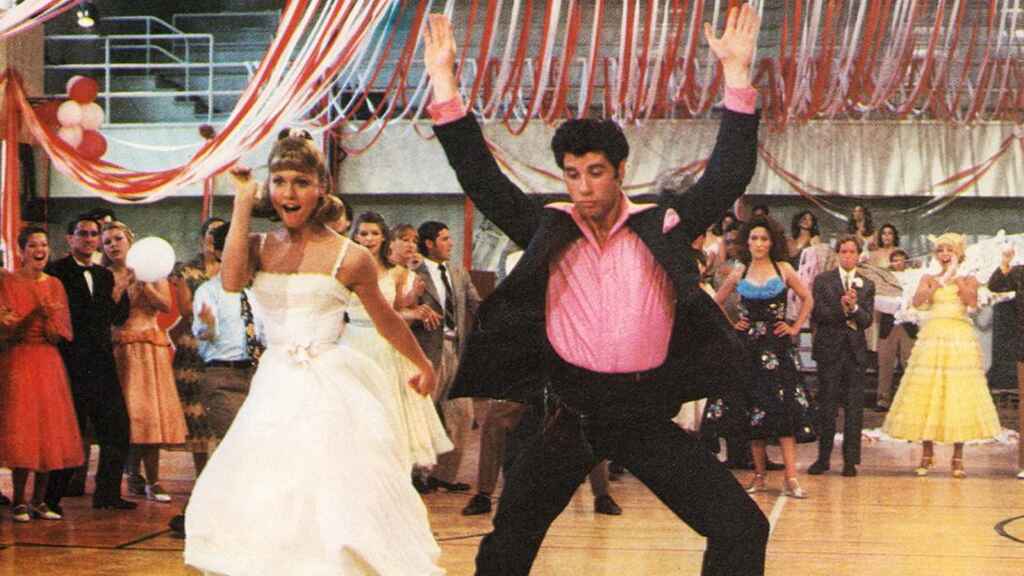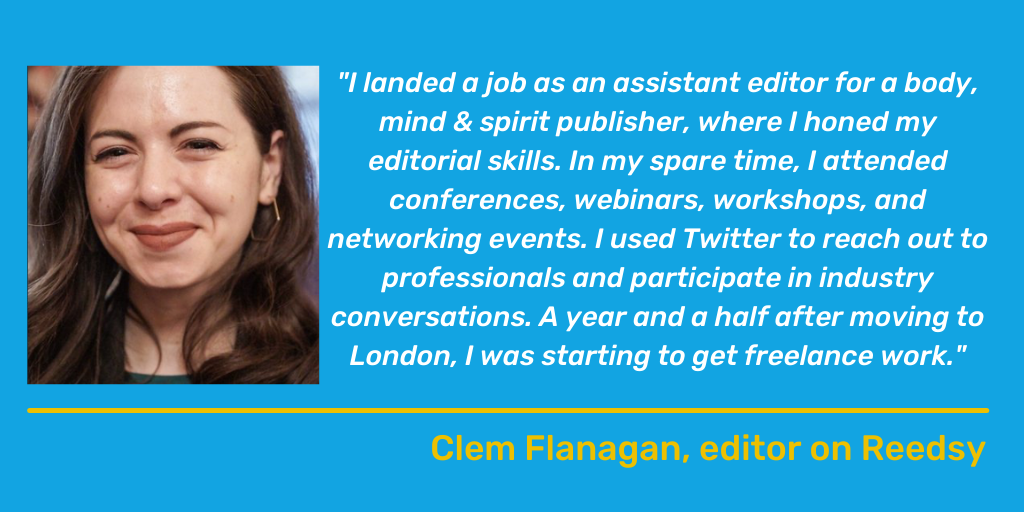how to become an editor without a degree
Any process that results in published writing involves an editor, which is why they form key parts of several industries. Responsible for proofreading, correcting, and often fundamentally revising pieces of writing, editors are integral in the publication of books, newspapers, blogs, magazines, or even advertising. But they do much more than that, too.
If you've got an impeccable understanding of grammar and a discerning eye when it comes to identifying structural and conceptual flaws in a piece of writing, read on to find out how to become an editor yourself.
What does an editor do?

In any type of publishing, an editor's job broadly aims to refine a writer's voice, achieve the piece's purpose, and ensure that the audience understands the text.
The exact duties of a professional editor differ in each industry, with many extraneous tasks attached to the role in each field. As we look at how someone might start a career in editing, we'll learn more about the sheer variety of editing work — so let's get started!
🤓 Curious about how much money an editor makes? Head to our post on editor salaries for more information.
How to become an editor in 5 life-changing steps
If you want to become a professional editor and aid writers in bringing their ideas to life, here are five simple steps that can help you reach that goal.
1. Clarify your long term goals

As in any career, your life as an editor might not end up where you thought it would at the start. However, it always helps to start by pointing your career in a direction: an area of publishing you would like to work in. Here are the major types of editing that might be suited to someone with skill and dedication:
Book editing
A book editor works closely with writers to revise and streamline their manuscripts ahead of publication. This involves various levels of editing, from developmental editing to copy editing and proofreading, so head to our post on the types of book editing to understand the differences between them.
Aside from editing text, an in-house editor working for a publisher is also responsible to communicate with literary agents and authors, coordinate with other publishing departments like marketing, design, and publicity, commission new titles, and perform routine administrative tasks such as writing cover blurbs, updating book metadata, and more.
💡Job titles: editorial assistant, assistant editor, editor, senior editor, commissioning editor, editorial director (note: these particular roles are listed from bottom to top of the ladder order)
News and magazine editing
A news or magazine editor is responsible for proofreading and structurally editing articles, fact-checking, ensuring consistency with the publication's house style and relevance to the publication's aims or themes (if any), commissioning articles from regular contributors, responding to pitches, and reporting to the publication's editorial board. Sub-editors usually only work on editing text, and do not have any commissioning/managerial duties, whereas section editors develop the strategy and direction of their section and report to management.
💡 Job titles: section editor, associate editor, sub-editor, editor
Academic editing
Unsurprisingly, academic editing belongs to the sphere of academic output, so it's usually a position held by someone with an academic background. This can be a full-time, in-house position at an academic publisher (e.g. Oxford University Press) or a voluntary, part-time contribution as a journal editor. Structural and copy editing are certainly important, but beyond that, these editors ensure academic rigor and ethical academic practice. The latter involves checking for plagiarism, fact-checking, verifying bibliographical data, or arranging for the creation of an index. Academic editors are also expected to coordinate the peer-review process and communicate feedback to authors.
💡 Job titles: academic editor, journal editor
Web editing
A web editor is responsible for managing an organization's digital content. The specifics will vary, but typical duties include editing articles or blog posts for publication, commissioning or assigning new pieces of content, deciding on subjects to be covered, using Search Engine Optimization (SEO) best practices to attract organic traffic, making decisions about how posts are presented, as well as promoting said content on social media (or collaborating with social media marketers).
💡 Job titles: web editor, content editor, content manager, blog manager, head of content
Technical editing
A technical editor is not so concerned with grammatical correctness or fluency of expression: their main focus is to ensure that highly technical information is accurate and communicated clearly. For this reason, technical editors with expertise in the subject matter at hand are usually hired to apply their knowledge to a piece of writing. From checking that any equations and graphs are accurate to ensuring information complexity meets the knowledge level of the intended audience, a technical editor operates as a subject matter consultant.
💡 Job titles: technical editor, subject-matter expert (SME)
Legal editing
Legal editing involves working with text in a legal context. Whether responsible for a particular legal organization's output or an in-house editor at a legal publishing company, a legal editor's job is not vastly different to that of a technical editor: the primary aim is to ensure accuracy and compliance with the aims of the publication at hand. A legal editor may also be responsible for compiling "digests" of court cases, researching legal issues, or analyzing legal news or developments.
💡 Job titles: legal editor, legal researcher, legal reporter
2. Level up your bona fides with an editing course

In a field that's inundated with aspiring editors, you'll typically need some relevant qualifications. In days past, some editors could get their foot in the door with skill alone but nowadays, a Bachelor's degree is more or less required to pursue an editing career. Beyond that, there's still more options, so let's examine them all.
📚Check out this list of books on editing for insights from seasoned professionals.
Bachelor's degree
You might assume that you need a specialist editing degree, but there aren't actually very many editing degree programs at undergraduate level. Instead, editors tend to major in related subjects, like English, Journalism, Communications, or another humanities subject like History (or indeed Law, if you hope to become a legal editor). If you're taking one of these majors, consider signing up for relevant classes (such as composition or literary criticism) to build up your skill set ahead of time.
Note: A bachelor's degree in an entirely irrelevant subject can still be very useful. Though the aforementioned majors are more relevant, employers mainly want to know that you have the work ethic and capabilities to handle a lot of text and organize yourself.
Postgraduate degree
A postgraduate degree in English, Publishing, Creative Writing, or a related subject can also come in handy, but it's again rare for universities to offer Master's or PhD programs exclusively dedicated to editing. Many editors do not have postgraduate degrees, and build their craft through shorter courses or work experience instead.
Other qualifications
Beyond getting all that college education, there are still loads of short-term courses on copyediting, journalism, or publishing that you can take. There are informal courses you can take for the sake of increasing your knowledge, like our free course about life inside a traditional 'Big 5' publisher, linked below. There are also plenty of proofreading courses or short-term editing programs that provide a certificate to boost your CV with. In short, the learning never stops!
Free course: Inside a Traditional "Big 5" Publisher
Learn what goes on behind the closed doors of publishing
3. Start with internships and small gigs

In an ideal world, you'd immediately find an entry-level position as an editorial assistant. But despite being considered entry-level, these positions usually require some prior engagement or experience with editing or writing. You may be able to nab one of these coveted roles if your CV contains relevant extracurriculars (such as being a student reporter or editor) or but many aspiring editors start out by securing work experience, an internship, or part-time editing experience. What these low-paying opportunities do offer, however, is a chance to get used to the workflow, hone your editing and communication skills, build your network, and grow your editorial portfolio.
Freelance editor Clem Flanagan tells us that her years working in entry-level positions were crucial in forging her network. The community is tight-knit and supportive, and most editors are happy to refer writers to fellow professionals who are either more experienced or looking for gigs. Authors themselves often recommend editors to their writer friends, so you should never underestimate the power of word of mouth. You may start small, but build that reputation steadily and it'll pay off.
Use the internet to your advantage
To find book editing internships, check Indeed, LinkedIn and, if you're still in school or recently graduated, your college's job search portal. It's also worth getting involved in Twitter — at least as a reader. Managing editors and publishers tweet about vacancies and networking events all the time!
If you can't find (or can't afford) to take an internship, look for short-term gigs on freelancing sites. Do note that, even with a compelling profile and plenty of self-marketing, you'll probably have to take jobs that don't really interest you at first. For instance, you might plan to specialize in developmental book editing, but you might find yourself copy editing blogs and academic essays to start with.
This part of your editing career is the definition of "the hustle." You'll be working long hours, not getting paid much, and probably feeling frustrated. But if you can push through all that, you'll emerge on the other side with the kind of knowledge and experience you can build a more sustainable career on. Hang in there!
4. Plan for the future and watch out for opportunities

With experience, you'll start noticing where your natural skills lie and what you enjoy doing the most. So while you're working on a variety of projects, you should be thinking about what kind of editor you'd like to be down the line. Even if you aren't ready yet to move into a new role, keep your eyes open (read: your Twitter lurking skills) for new opportunities. Read through job descriptions for editorial roles within your industry and beyond it, and make a note of any recurring requirements, such as familiarity with specialist software or Search Engine Optimization.
You can then take steps to build the necessary skills in your free time or within your current role, with a view to transitioning to a different job. For example, an editorial assistant for the Lifestyle section of a magazine could find their way into nonfiction book publishing via a Lifestyle imprint that publishes health and food and drink titles. And if you're happy with the niche you're in, the ladder-climbing begins. Alternatively, you can look into becoming a freelance editor on Reedsy to exercise more control over your work days.
🧠 To level up your skills, check out our post on becoming a good (nay, great!) editor .
5. Keep growing your network
Assuming you've now got substantial editing experience, you'll have naturally accrued some contacts in your industry, online or in real life. From literary agents to journalists, academics, and creative directors, you'll know a good number of people in different positions within your field. And you might not realize it at first, but sub-fields of professional activity in a particular city, region, or even country (looking at UK book publishing) are a small world, where you'll run into the same people throughout your career.

So be nice. Respond to strangers' requests politely and thoughtfully, even if you want to decline. Introduce people who might like to work together to each other. Recommend hard workers. Put in a good word for entry-level assistants when you've progressed to a more senior level. Treat interns with patience and respect. Send people job opportunities you happen to see that they may be interested in. All of this, in other words being a kind, respectful, and decent person to work with, will help you in more ways than you can imagine.
This may not come in the form of a job offer divinely descending upon you from the heavens. But it'll work in quiet ways that lead to people treating you well and taking you seriously, as well as giving you a nice boost of good karma as your career progresses.
Down the line, who knows what you'll accomplish? A project you've worked on might just end up making the bestseller lists, or winning a Pulitzer Prize. One thing is for sure: if you've always wanted to make your mark in the world of culture, becoming an editor is an amazing way to do that.
how to become an editor without a degree
Source: https://blog.reedsy.com/freelancer/how-to-become-an-editor/
Posted by: reckbuthrel.blogspot.com

0 Response to "how to become an editor without a degree"
Post a Comment